Last updated on December 4th, 2023
Featured image: Our writers share ways women can change travel moving forward. Change can be overwhelming, but there are small steps we can all take together| Photo by Lolostock on Shuttershock
Five things women would like to see change in travel
by Carolyn Ray
There is no shortage of ideas about ways the travel industry can adapt to the needs of women, and what we, as women can do to create change. Simply acknowledging the influence of mature women is a good start, but following through with concrete actions is what makes the difference. Since we released our study results showing the importance of women over 50 in travel last December, we’ve seen some progress. Simply searching for ‘women over 50 in travel’ shows many companies that are aligning their services to mature women, with JourneyWoman at the top organically! Many, if not most, of the companies in our Women’s Travel Directory offer discounts and no single supplement to women over 50 who want to travel independently.
However, there is still much to be done. When it comes to the influence of women in the travel industry, it is well known that women make 80 percent of travel decisions and comprise two-thirds of all travellers. Our own research shows that 96 percent of women over 50 make their own financial decisions and 51 percent spend more than US$3,000 a week on travel. With our wisdom, experience and spending power, women should be at the forefront of change, not behind it.
As we look to the future, we must exercise our voices more emphatically and visibly. It’s not a new behaviour for us, but one that needs to be accentuated to sustain change. In this ongoing series, we invited five women from our travel writing team to share their thoughts on what needs to change in 2024, and how we can all take action to make a difference, one step at a time. We invite your comments and ideas to help bring these changes to life.
Support our efforts to amplify the voices of women. Sign up for our monthly newsletter now.
Five things that women can do to create change in the travel industry
Rupi Mangat, Wildlife Conservation Writer, based in Kenya
What women can do: Don’t buy into the rhetoric that paints entire countries as ‘unsafe’
We all know it. Bad press sells. But it does nothing for local communities who live in those countries and whose livelihood depends to some degree on the tourism dollar. For many, an incident happening in a remote or not-so-remote place in Kenya or any African country is equated as ‘Africa is dangerous’, yet nothing could be far from the truth.
This happens all the time. A terrorist attack in the city equates to the whole country. Yet within the same city, many people are even unaware while travelling around the country is seeing life as usual. There are crimes and wars happening on other continents. The Twin Towers got bombed in broad daylight but everyone still goes to New York. Unfortunately, when a similar incident happens somewhere in Africa, the security alerts advice its citizens not to travel there or travel with caution.
In all fairness, none of us want to be in a war zone and unfortunately, there are countries at war. You do not want your life endangered. But when an incident happens, it’s not like the whole country or continent is a danger zone.
So be alert to what’s going on. But to blanket a whole country doesn’t help her people or wildlife. It gives in to fear, just as the proponents want it.
Read More: Seven Ways Women Can Travel More Sustainably
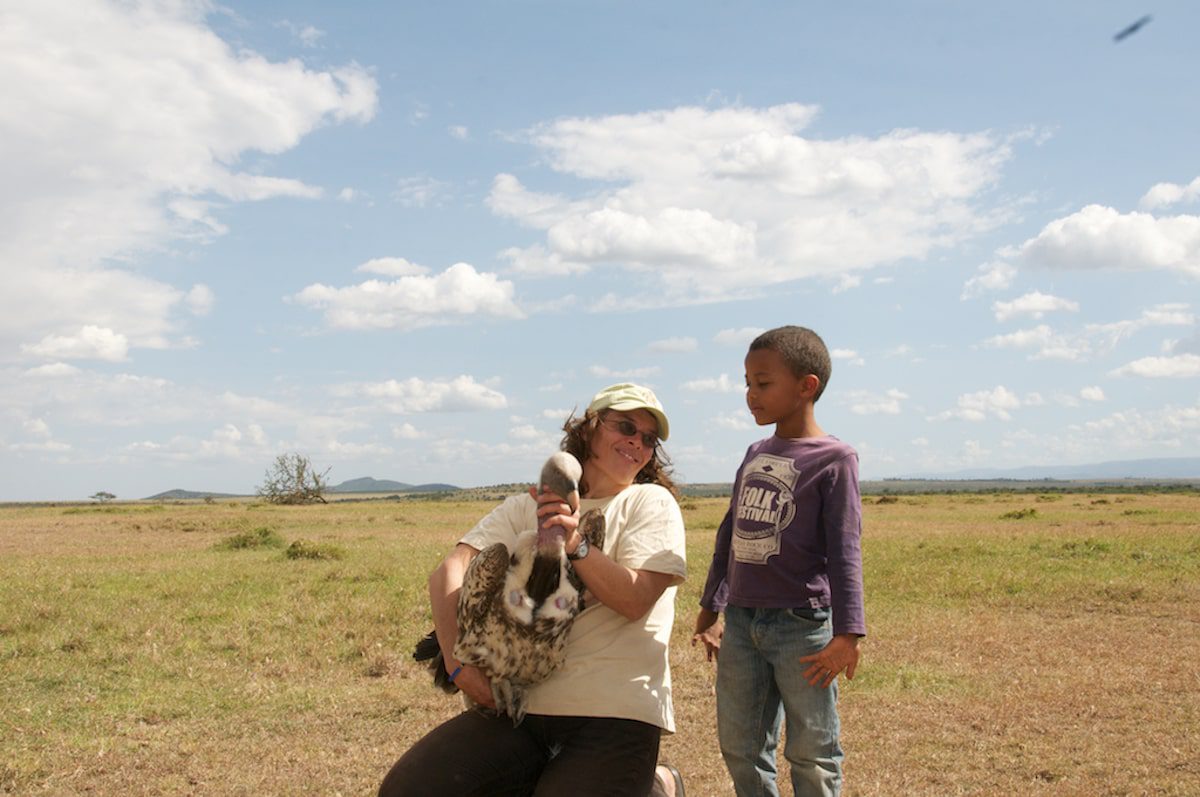
Rupi Mangat’s articles focus on how women in Africa are changing paradigms and protecting wildlife, like “the Raptor Woman’, Dr. Darcy Ogada, who is saving Kenya’s iconic birds of prey / Photo from Rupi Mangat
Tanzla Khan, Accessible Solo Travel Writer, based in Sweden
What women can do: Support women in wheelchairs, show empathy and advocate for inclusivity
I picked up that rucksack and charged my wheelchair battery to the fullest to see the beauty of the world. But less did I know that the world needs its charging of empathy and inclusivity.
Women on wheelchairs play a crucial role in enhancing the travel experience by advocating for increased sensitivity and inclusivity among tour operators. Their unique perspective sheds light on the specific challenges faced by individuals with mobility limitations, prompting operators to adopt more accessible practices. Through open dialogue and collaboration, women on wheelchairs can contribute to creating environments that prioritize inclusivity, ensuring that attractions, transportation, and accommodations cater to a diverse range of needs.
Their advocacy not only fosters a more welcoming travel industry but also promotes a broader understanding of accessibility, ultimately enriching the journey for everyone. I hope to see more women on wheels conquering lands and skies across the world!
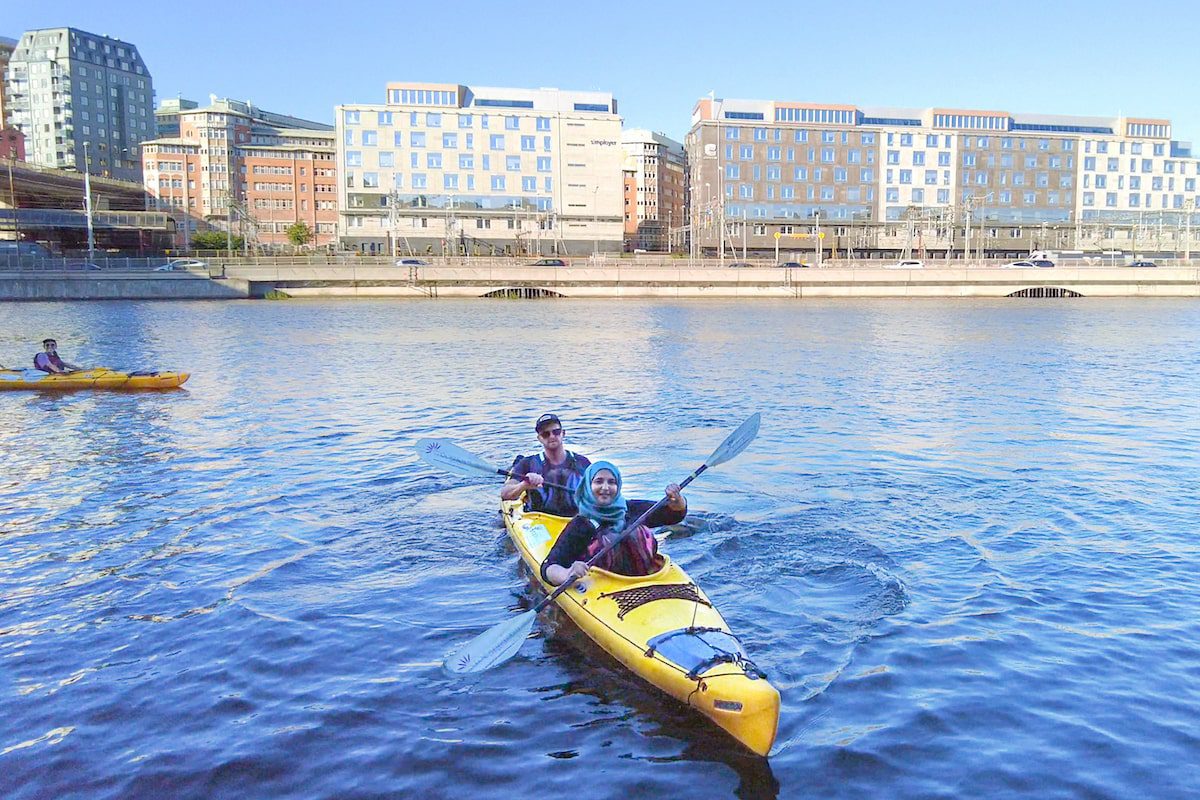
Tanzila Khan Completing a Kayaking Tour in Sweden / Photo credit Tanzila Khan
Diana Eden, Women Over 80 Writer, based in USA
What women can do: Advocate for more accessible airports
Recently, I wrote about the dread I feel when facing a long plane trip to destinations overseas. I am excited to arrive at the destination, but sometimes, I think I am passing through the Gates of Hell to get there.
Well, perhaps that’s a bit dramatic. But the long distances between airport check-in and departure gates seem daunting to someone like me and thousands of others with bad knees, hips, or backs. Airports get bigger and bigger, and the distances to walk longer and longer. Lineups and waits to get through various checkpoints can leave one standing from minutes to hours.
Yes, the airports help with moving walkways, but often they are out of service. The airports have wheelchair options and assistance with people movers and carts of various types and do not require proof of a “handicap.” I fall somewhere in the middle, somewhere between being able to jog 3 miles a day before breakfast and being mobility-challenged enough to require a wheelchair and a human to push me. And I suspect there are legions of us.
What can be done? I would advocate for:
- More places to sit along the way, even small seating areas, perhaps with a welcoming sign that says “please give preference to our senior travellers” or words to that effect.
- Separate lines at TSA and immigration checkpoints for 75 and older. If no one is in that line, then regular travellers can move forward.
- Many more electric carts readily available and running frequently between gates and along long concourses.
- Better designed moving walkways that break down less often, and quicker repairs of those not in service.
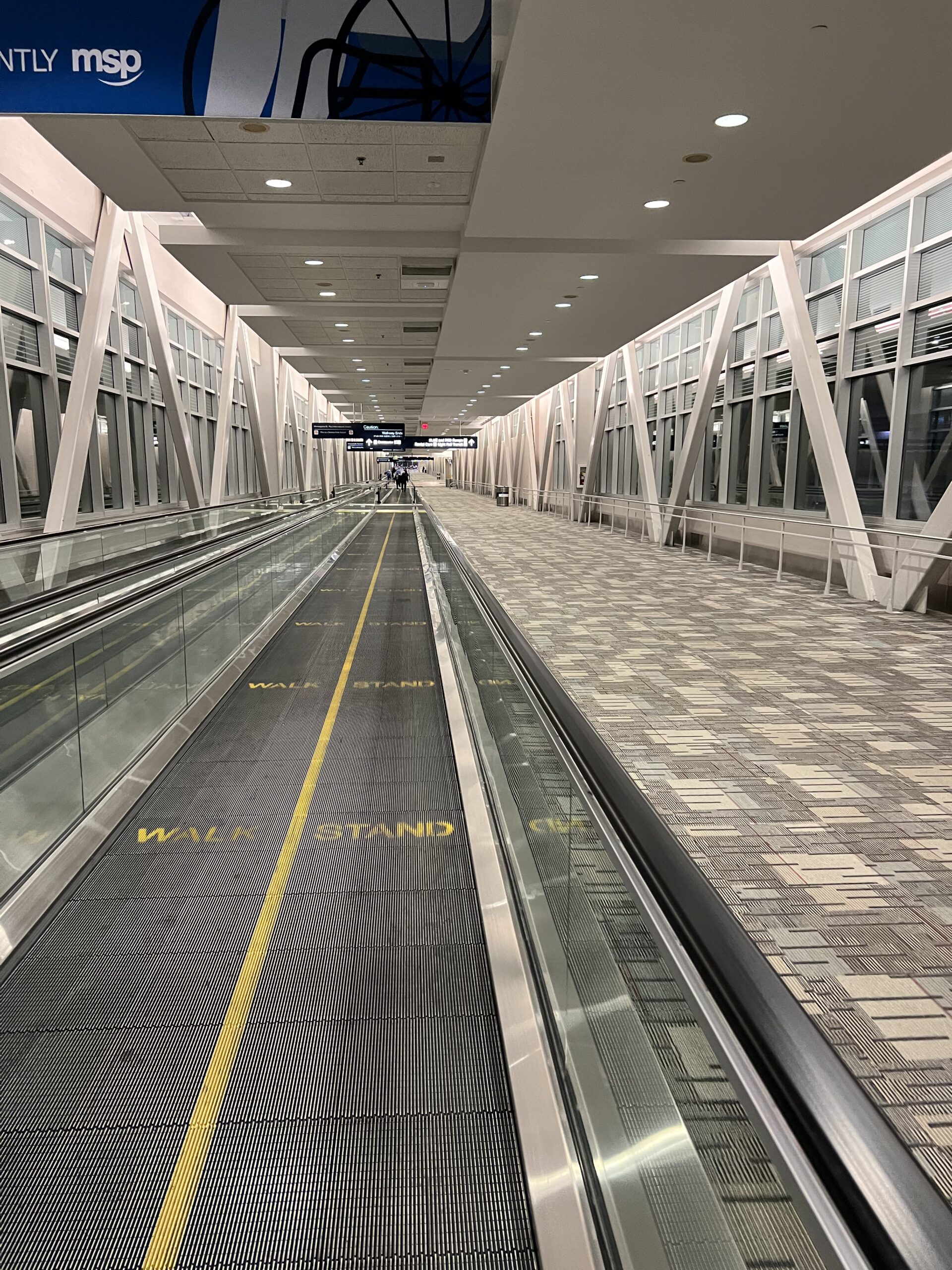
A recent trek through the Minneapolis Airport / Photo credit Diana Eden
Let’s talk about it, write about it, and ensure these ideas get in front of the aviation and airport industry. Panel discussions with those that administer airports, postings on social media, and letters to the editors of travel magazines and aviation magazines.
Kathy Buckworth, Multi-Generational Travel Expert
What women can do: Share safe places to stay
As a 60-year-old woman who often travels solo, or with my young grandchildren, I find it hard to determine whether a hotel I’m booking into is in a safe established area.
This is important to me, as I love to thoroughly explore a small radius around a hotel in a larger city. You aren’t always able to determine the safety level of a hotel by price, although one naturally assumes that the higher the price, the safer it will be. Not everyone’s budget can stretch to a five-star hotel, and in fact that doesn’t always guarantee that the neighbourhood surrounding the hotel is one we’d feel comfortable exploring.
What can women do? We can start recommending hotels based on price, value, and safety level and share it with fellow travelers, online. Something as simple as a hashtag like #SafeHotelsForWomen could direct women, and others who feel vulnerable traveling solo, (no matter their gender) to safer locales.
Carolyn Ray, Editor, JourneyWoman
What women can do: Support travel companies that offer flexibility without exorbitant costs
As travellers, we are used to the constant changes that occur when flights, weather or situations change. I’m more than willing to adapt, but the travel industry is not. I remember vividly when the travel industry accommodated flexibility. It was easy to change a flight, adapt travel plans or make a decision on the fly. Today, however, it is practically impossible. With all the new rules and regulations, we are constricted to the point where additional costs to change anything literally suck the breath out of my body.
While flexible change or cancellation policies are heavily marketed, the reality is that flexibility comes with a hefty cost. It’s no longer possible to adapt to change cost-effectively – instead we are forced to plan travel to the teeth. We exist in a world of complex rules and regulations, where any misstep costs us more money. It’s no wonder there is so much stress and anxiety around travel. And when things do go wrong, we are often left unprotected. Even when we do purchase travel insurance, there is always some loophole or variable that could never have been considered that affects the outcome. I was shocked to discover that my travel insurance didn’t cover acts of war when I was travelling in the Middle East in October. However, to its credit, Air Canada offered flight changes from Tel Aviv without a change fee.
Hotels have changed too. In looking at a long-stay at an Airbnb, I search for apartments with flexible cancellation policies. When I find one to book, I see that places that offer ‘free cancellation’ cost more than non-refundable. In some cases, ‘free cancellation’ only lasts for hours or days before I am charged in full. Is that truly flexibility? Even Booking.com, which used to be my go-to for hotels, says that properties are ‘flexible to reschedule if plans change’ while also saying they are ‘non-refundable’ in the same listing. What that means, if you read the fine print, is that your booking can be rescheduled to a different date, but not not refunded, and that there may be an additional cost. I now use Expedia, which allows for last-minute changes, and doesn’t bill in advance for car rentals.
When it comes to flights, one would hope that the goal of travel is to get us where we want to go quickly and efficiently. However, that only works if you conform to the rules. On Air Canada, I used to stand by on flights and hop on. Now there’s a hefty and unaffordable charge for a simple flight change to get me home earlier. While the US Department of Transportation urges us to ‘be flexible in our travel plans to get the lowest fare’, it also notes that ‘discount fares are non-refundable’. And what about compensation when things happen beyond our control? At least in Canada, any passenger who is denied boarding for a reason that is within the airline’s control and is not required for safety – for example, commercial overbooking or a change in aircraft due to scheduled maintenance – is entitled to compensation. Read more here.
Another example of the lack of flexibility (and mind-boggling inconsistency) is carry-on luggage. We are encouraged to travel lightly, yet the rules for what is carry-on vary widely. What is a carry-on on one airline is refused at the next. What is allowed in one country’s security line is not permitted in another. Then there are the additional costs to reserve an actual seat itself after paying for the ticket. Does this mean the ticket doesn’t come with a seat? It’s like buying a car but having to pay more for the tires. All of these rules and regulations, which are designed to maximize profit, are the antithesis of flexibility. I will choose to travel with companies that respect my need to change my mind and my plans. I’d love to hear from our readers what companies they find flexible and adaptive, that don’t charge for every change.
More on Women in Travel
Indigenous Women in Aviation: Flying the Female Skies
In Canada, Indigenous women are making their presence felt in the aviation industry, which has historically been dominated by men.
Women’s Rights and Gender Equality: A Solo Traveller’s Perspective
As a solo traveller, I’ve seen first hand that the struggle for gender equality continues, both at home and for women worldwide.
JourneyWoman, Don’t Stand on the Sidelines
Featured image: Let’s step into the future not the past | Photo by ShutterstockThis is our time as women to participate by Carolyn Ray Whether you’ve been out travelling or at home, you may have noticed some distressing shifts in how women are being treated in the...

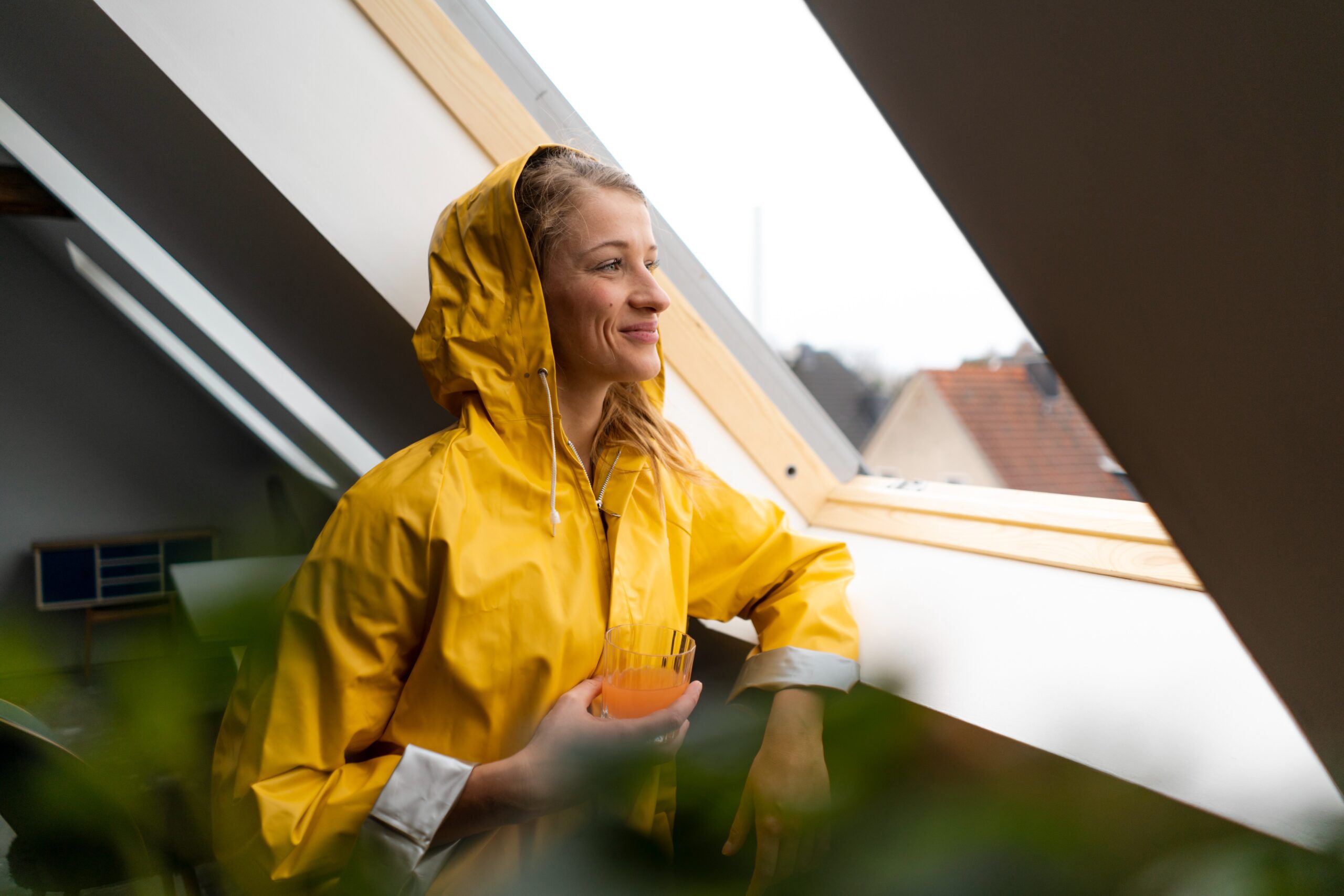



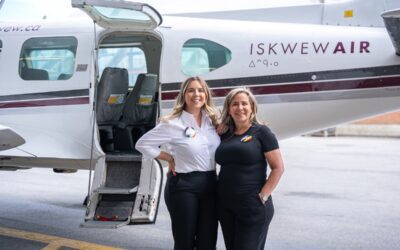

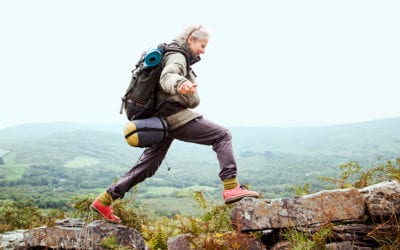
0 Comments
We always strive to use real photos from our own adventures, provided by the guest writer or from our personal travels. However, in some cases, due to photo quality, we must use stock photography. If you have any questions about the photography please let us know.
Disclaimer: We are so happy that you are checking out this page right now! We only recommend things that are suggested by our community, or through our own experience, that we believe will be helpful and practical for you. Some of our pages contain links, which means we’re part of an affiliate program for the product being mentioned. Should you decide to purchase a product using a link from on our site, JourneyWoman may earn a small commission from the retailer, which helps us maintain our beautiful website. JourneyWoman is an Amazon Associate and earns from qualifying purchases. Thank you!
We want to hear what you think about this article, and we welcome any updates or changes to improve it. You can comment below, or send an email to us at [email protected].